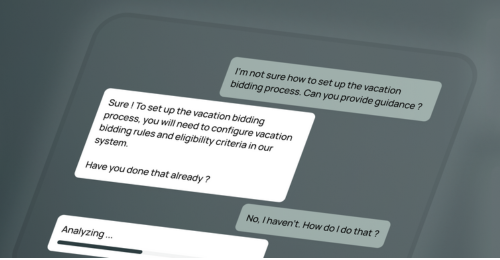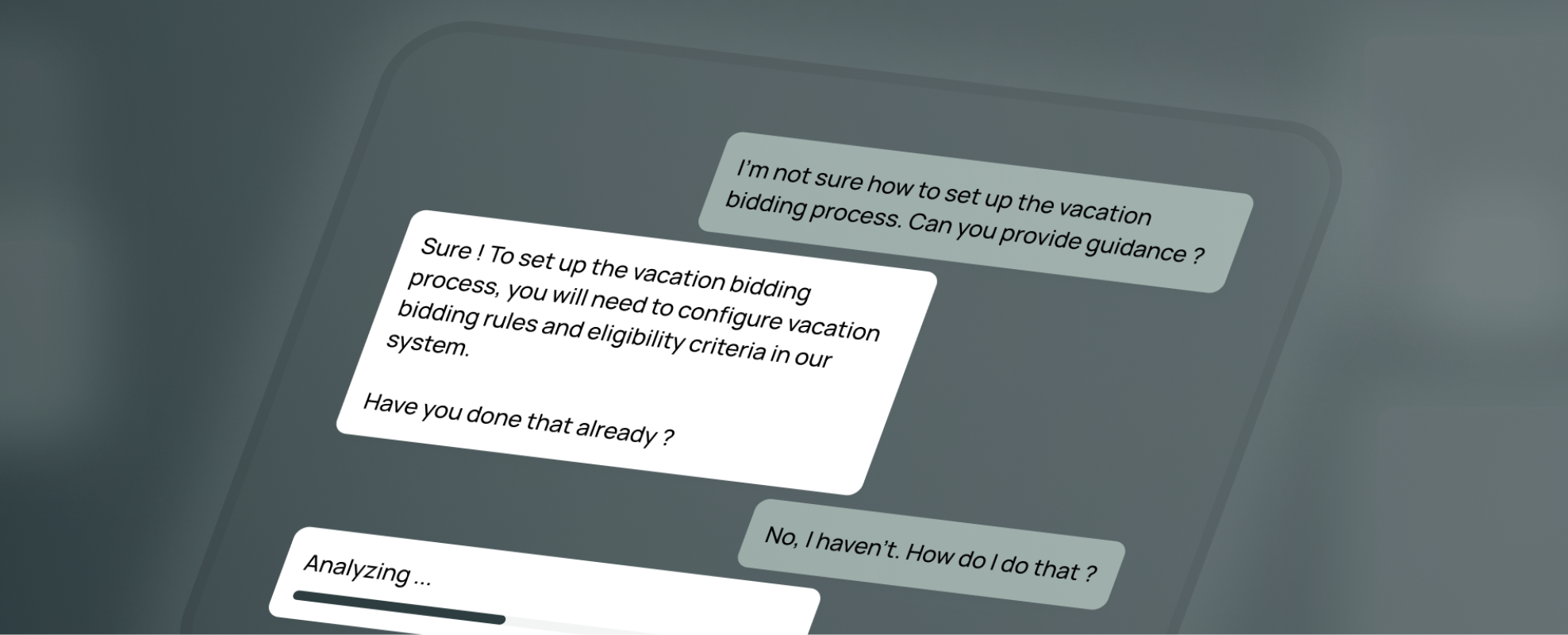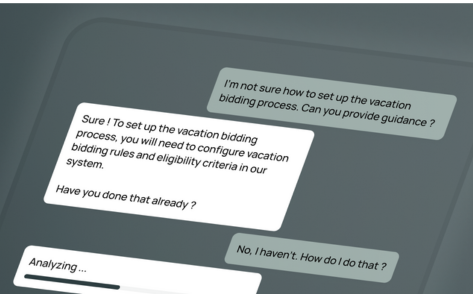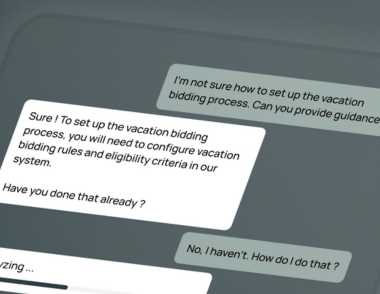Demystifying Generative AI: Why It Matters for Modern HR Solutions
In the ever-evolving landscape of HR technology, the buzz around AI, or Artificial Intelligence, has been inescapable. But among its many branches, there's one that stands out with particular promise for HRIS (Human Resource Information System) users: Generative AI. So, what is it, and why does it matter to modern HR solutions?




What is Generative AI?
Generative AI refers to algorithms and models that generate new data from existing ones. Imagine a system that can create entirely new employee scheduling patterns after analyzing current ones or one that can suggest training programs tailored to individual needs based on prior learning data. That's the power of generative AI: it doesn't just process data; it creates.
The Relevance for HR
1. Employee Autonomy in the Age of AI: The evolution of HR technology stands as a testament to our commitment to employee empowerment. We've arrived at a juncture where technology and human aspirations intertwine, laying the foundation for an even brighter future: the seamless integration of generative AI. Picture a horizon where AI is not merely a tool but a proactive partner, anticipating the myriad needs and aspirations of employees. Through intricate analysis of past behaviors and emergent patterns, AI is poised to foresee and respond even before we articulate our needs. This synergy signals a future where we amplify our established systems with AI's visionary capabilities, sculpting a workspace that marries adaptability with time-tested efficacy.
2. Navigating Bidding Processes within CBA Constraints: Bidding processes like vacations, schedules, shifts, or even position bidding, especially under strict Collective Bargaining Agreements, present unique challenges. Generative AI can assist by understanding and adhering to the specific constraints of the CBA. Instead of broad adjustments, it focuses on micro-optimizations within the defined limits. By predicting which slots might be most contested or identifying patterns that maximize satisfaction within the CBA's framework, generative AI can help streamline processes, reduce grievances, and foster a more harmonious work environment.
3. Enhanced Forecasting from Bidding Insights: Beyond just facilitating the bidding process, generative AI can extract trends, such as peak vacation requests or preferred shift times. This knowledge enables HR professionals to better anticipate workforce trends, adjust staffing levels, or create incentives, driving proactive and informed decision-making.
4. Insights for Rule-Based Adjustments within CBA Parameters: While modern HR solutions can suggest rule adjustments based on observed trends, the presence of strict CBAs necessitates careful consideration. Generative AI, understanding the constraints of the CBA, can offer insights and recommendations that align with the agreement. These insights might not lead to immediate automated adjustments but can provide valuable data points for future negotiations or highlight areas where the CBA and operational efficiency intersect harmoniously.
Why It Matters
Today's workforce demands agility. As work models shift, especially in the post-pandemic era, businesses need tools that not only keep up but anticipate and adapt. Generative AI does precisely that. By continuously learning and generating solutions in real time, it ensures that HRIS platforms remain not just relevant but ahead of the curve.
Moreover, the insights drawn from such AI models can be game-changing for HR professionals. By offering predictive analysis, these tools can provide a foresight that can be pivotal for decision-making, ensuring businesses remain proactive rather than reactive.
Final Thoughts
The integration of generative AI into HRIS systems signifies more than just a technological upgrade; it's a paradigm shift in how HR solutions can serve businesses. As with all innovations, early understanding and adoption can set companies apart, offering them a competitive edge.
So, while generative AI might seem like a buzzword today, its implications for modern HR solutions are profound. It's not just about the future of HRIS but about shaping the future of work itself.
Subscribe to our Newsletter
Stay ahead of the curve with exclusive updates, valuable insights, and exciting opportunities delivered directly to your inbox
Related articles





